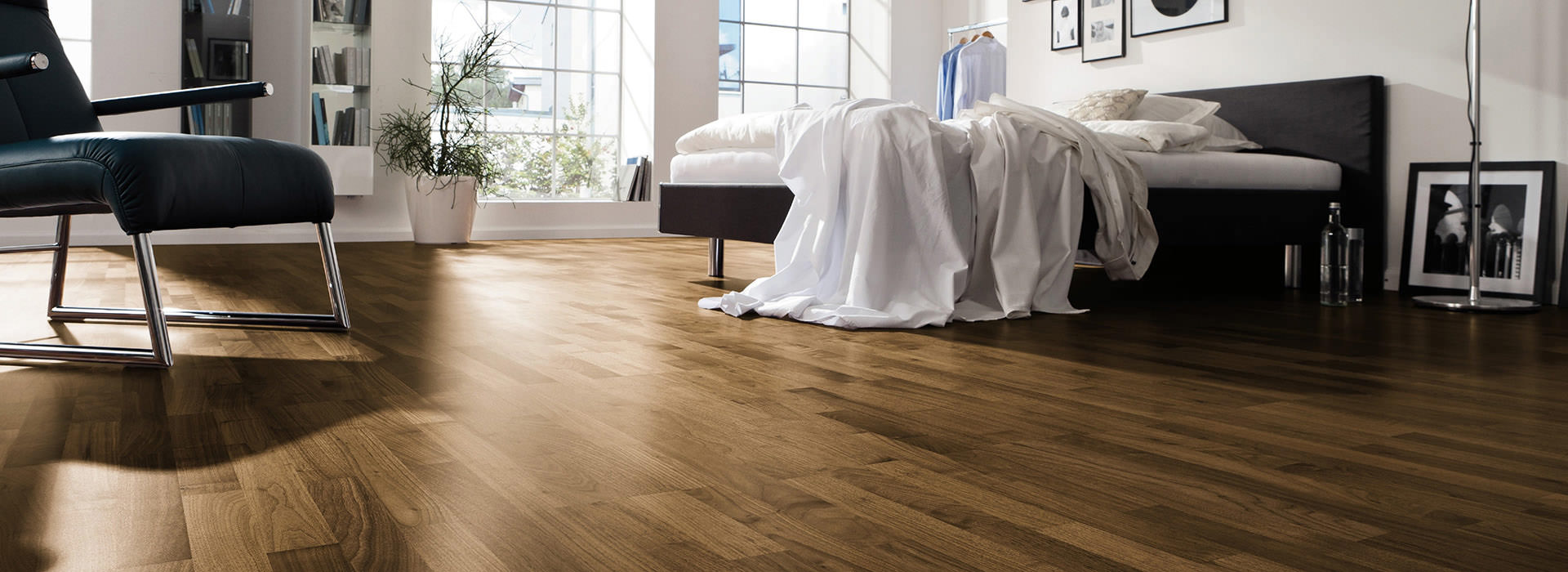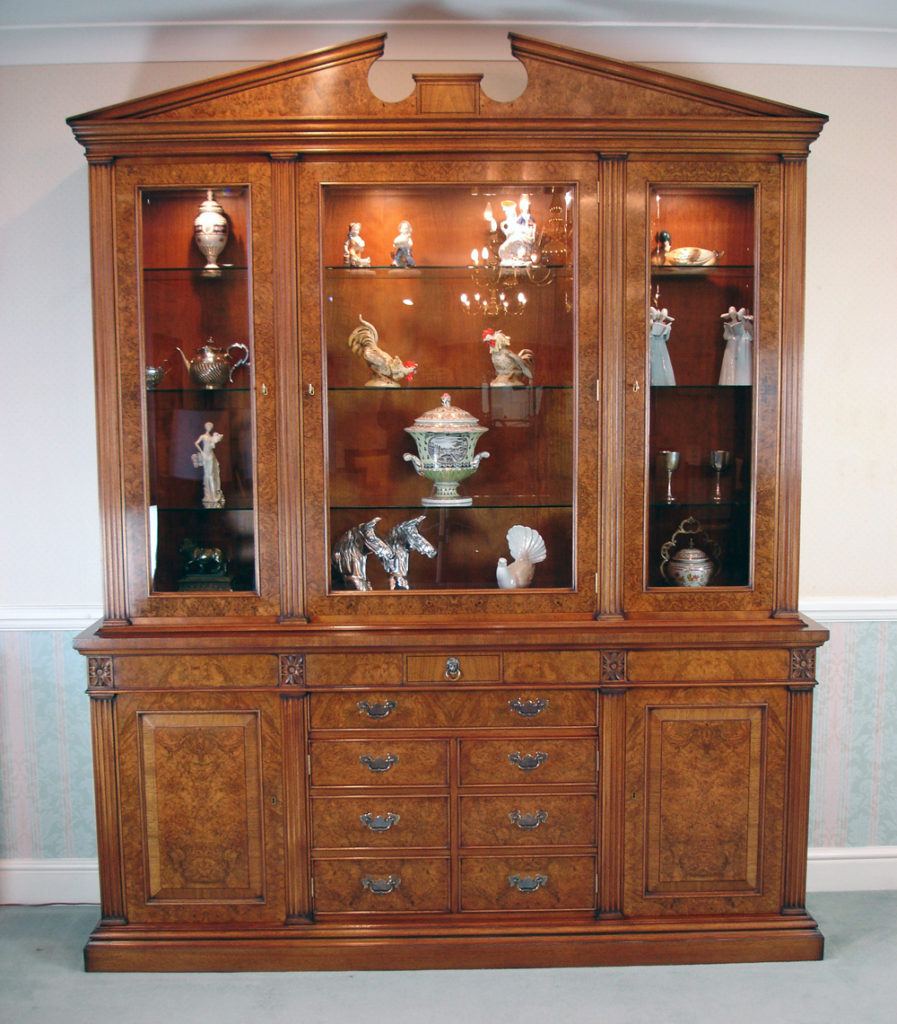
Regarding flooring, there seems to be a new trend on the rise almost yearly. However, with all fads, these trends tend to disappear even faster than they’ve come into the spotlight.
Hardwood flooring is a trend that never seems to go away and always stands the test of time. Durable, sturdy, and versatile, accompanied by exquisite craftsmanship, hardwood floors give every house class and timelessness.
But no matter how romantic we make it sound, hardwood floors are a costly investment in time and money. A lot of effort must go into choosing, buying, installing, and finishing hardwood floors. This is why such a major renovation is often done once in a lifetime.
Here at Martin Allen, we know how important the right flooring is as we’ve been working with hardwood for over 20 years. With the number of questions we’ve been getting, considering all things hardwood, we’ve decided to develop a short guide to the three most commonly used types of hardwood – mahogany, oak, and walnut.
With our former, current, and future customers in mind, this short series of articles introduces a common wood species and its present use in hardwood flooring.
If you would like to read our post about mahogany, go here, and if you would like to learn about oak, go here.
This is the latest of three articles that will give you some fundamental insight into the incredibly luxurious and sought-after walnut tree.
The widespread and diverse genus of walnut
The term walnut can refer to any tree belonging to the genus of Juglans. While all these trees bear different names, their common denominator comes from their seeds – walnuts.
There are 21 different species of walnut trees, ranging worldwide—from North America and Canada to Europe, Central and Northern Asia, Japan, and Argentina and its neighbouring countries in the southern hemisphere.
Although walnut trees are widespread and relatively common worldwide, walnut timber is one of the most luxurious and expensive non-exotic woods available.
Prized for its incredible hardness and durability, as well as its intricate and complex grains and colouring, walnut has been the staple of the luxurious woodwork for centuries. The timber of choice for gun makers is among the most popular choices for premium rifle and shotgun stocks.

Benelli Super Black Eagle II 25th Anniv Pacific Flyway Shotgun 10138, 12 Ga, 28 “, 3.5″, AAA Wal” ut S
The dense and intricate grains in walnuts make this tree a favourite among prestigious car manufacturers and luxury cabinet makers.

Bentley Azure T walnut interior
Types of Walnut
Although there are more than 20 species of trees in the walnut genus, only a select number of them are used in hardwood flooring. While some are too expensive and scarce, others have timber that is either too soft or too hard to be used as flooring.
The two most common types of walnuts are American and Brazilian. The English walnut is also widespread across the islands but used on floors.
Brazilian walnut is harder and much more resilient than its American counterpart, so it has always been a top-rated flooring solution for higher-end homes.
Brazilian walnut is also one of the hardest woods in the world, scoring over 3500 on the Janka hardness scale. Such hardness might seem preferable for hardwood used as flooring, but it is often a double-edged sword.
Incredibly hardwoods are durable but also extremely hard to work with. Hard floorboards are prone to splitting when cutting and trimming with inadequate tools and need a steady, experienced hand when installing.
Another incredible characteristic of this exotic walnut is its fire resistance. The fibres in this hardwood are so densely packed that Brazilian walnut has the same fire resistance as concrete and steel. The densely packed fibres also prevent the boards from bending, cracking or splitting under pressure.
American walnut, on the other hand, is a much less dense tree. Ranked below 1000 on the Janka hardness scale, it is the softest in North America and the world.
In the heart of an ancient forest, where the whispers of the trees tell tales of time immemorial, there stands a tree unlike any other. This tree, known as the American Walnut or sometimes as the Black Walnut, validates the balance between strength and vulnerability. Its wood, soft to the touch, carries a legacy of resilience and grace.
Like a guardian of ancient secrets, the Black Walnut is revered for its unique qualities. Despite its softness, it is a wood that holds an inner strength that makes it both durable and a joy to work with.
Within its fibres, one can find a story of adaptability. Although its tender nature makes it susceptible to scratches and dents, its beauty lies in how it wears these marks with pride, blending them into its rich tapestry.
Consider the reasons why this timber is so cherished:
- Camouflage of Imperfections: The deep, dark brown hues, akin to those of its Brazilian cousin and intricate grains, cleverly disguise any surface damage that might occur in bustling environments.
- Spectrum of Beauty: Depending on its age and the artistry in its cut, walnuts reveal a palette that dances from purplish tones to olive greens, making each piece a unique work of art.
- Natural Elegance: Its inherent beauty is so profound that it rarely requires additional polishing or finishes, confirming the raw grace found in nature.
In the embrace of the Black Walnut, one finds a sense of belonging, a connection to the earth and the stories it holds. With its complex hues and resilient spirit, this timber reminds us that true beauty lies not in perfection but in the harmony of strength and tenderness.
But despite its incredible features, walnut flooring isn’t isn’test choice for every property.
Walnut boards are notoriously expensive, so they might not be the best option for a renovation project with a mid to low-range budget.
The intricate patterns of the grains and the deep, dark hues of the boards make them suitable for a limited range of rooms.
Dark hardwood can suffocate a small room, especially those with matte or oil finishes and different grains. This luxurious flooring also won’t fit rooms with awkward corners, pillars, dark walls, or lots of furniture.
If you are unsure whether walnut is the best choice for your home, email us at office@martinallen.co.uk or 01162 165 107. Our flooring experts will be at your doorstep in no time, offering advice and ideas that can only stem from more than two decades of experience.
- By: Andjela Jovetic
- Tags: Walnut
- Category: Wood Flooring, Wood Species
- 0 comment



Leave a Reply